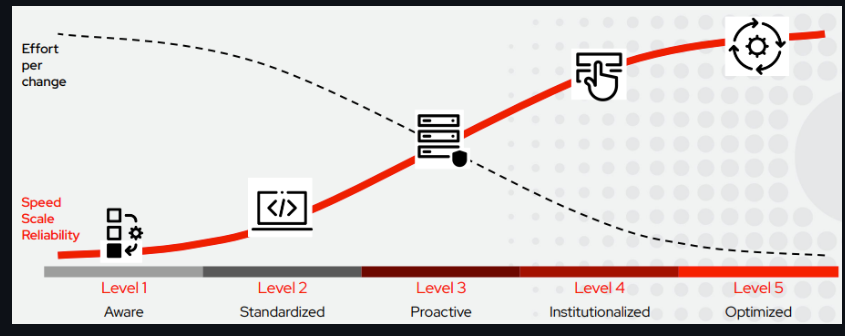Why a CoP Based on Enablement?
Please download and review these ebook.
Two e-books that outline the benefits of a CoP for automation maturity (adoption):
This image aligns with the “Advance your automation maturity” where a CoP is part of the progression. The assumption is this CoP is starting at Stage 1.

What is a CoP?
A Community of Practice (CoP) is a group of people who “share a concern or a passion for something they do and learn how to do it better as they interact regularly.” 1
Three crucial characteristics:
-
Domain The community has an identity defined by a shared domain of interest. Members share a common competence or interest that brings them together.
-
Community Members engage in joint activities and discussions, help each other, and share information. They build relationships that enable them to learn from each other.
-
Practice Members are practitioners who develop a shared repertoire of resources, experiences, stories, tools, and ways of addressing recurring problems – in short, a shared practice. This takes time and sustained interaction.
More about a CoP
Communities of practice (CoP) can form around various topics, such as project management, artificial intelligence, cybersecurity, or, in this case, enablement. A community of practice is a group of people who come together around a shared interest to share knowledge, solve problems, and develop expertise over time. Unlike teams or task forces, which often focus on specific goals and deliverables, a community of practice is about long-term learning, collaboration, and continuous improvement. Community members can come from different departments, roles, or skill levels. Instead of obsessing over achieving immediate results, a good community of practice focuses on learning, sharing best practices, and evolving together.
Collaboration
Increasing collaboration between profiles increases innovations and reduces opportunities for miscommunication. Communities of practice encourage members from all roles across all departments to share expertise - reduce organizational silos.
-
Gist based on Wiki Community of Practice ↩